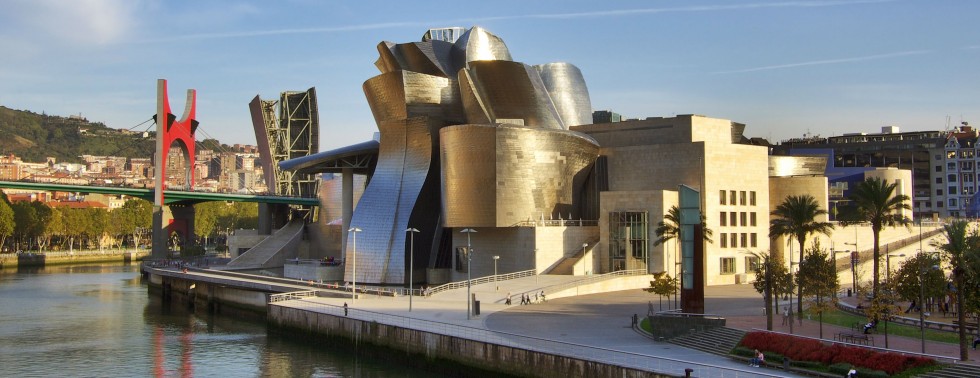Year after year, Spain continues to be the top receiving country for mobility students within the Erasmus+ program. And, after being there myself for a year, I can admit that there are plenty of reasons why: the food, the weather, the people and the quality of their universities are only some of them.
However, I believe that the most important reason is that Spain is very diverse culturally and geographically, so there are a lot of places to choose from and I’m sure you can find the perfect city for you.
The Erasmus+ program was launched in 2014 and had its roots in the original Erasmus program from 1987 which was focused on higher education and aimed to promote student and staff mobility among European universities. Nowadays, Erasmus+’s features include other elements such as adult education, vocational training and sport actions, but, of course, their mobility program for higher education is its most known feature.
This program represents a significant investment for the European Union as it is one of its flagship initiatives and reflects its commitment to fostering education, youth development and international cooperation.
In 2022 Spain received more than 60,000 mobility students and staff, positioning the country as the number one Erasmus+ destination, a title that the country has held for several years.
In this post I will try to put into words what is so attractive about four Spanish cities for mobility students, so if you are looking for your next Erasmus+ destination, keep reading!

Salamanca
• perfect for you if you are into: walkable distances, peace and quiet, partying
• not for you if you are not into: small towns, crossing paths with professors and classmates everywhere
Salamanca is a student city located in the northwest of Spain only a few hours away from the Portuguese border and it’s the city I chose as my Erasmus+ destination. It is an extremely small city; you can go from one end of the city to the other in less than an hour by walking. That made it very attractive to me because I tend to feel overwhelmed by huge cities. It is, however, close enough to Madrid (90 minutes by train) if you want to have the big city experience for a weekend and then go back to the peace and quiet.
Furthermore, the University of Salamanca is one of the oldest ones in Europe, so it is very prestigious and I must say that, even though it is an old institution, they have managed to stay up to date regarding their programmes and teaching methods. Living in Salamanca was a wonderful experience, I feel that at this point the locals are very used to the international student community. However, I felt a lack of a wider range of cultural events because most of the nightlife is aimed at younger students who want to party everyday.

Valencia
• perfect for you if you are into: the beach, lower rent prices, delicious tapas
• not for you if you are not into: hot weather, adapting to the Spanish and Catalonian culture at the same time
When thinking about a city in Catalonia, I believe the most famous one for student exchanges would be its capital: Barcelona. However, my second option for Erasmus+ was Valencia and not Barcelona for a couple reasons. First of all, the housing crisis in Barcelona is making the rent prices absurd, even for students; second, Barcelona receives a huge number of tourists all year around, so Valencia offers more of a relaxed environment overall.
Having said this, I had been to Valencia before I submitted my Erasmus+ application and I must say that I loved the city, the food, the beaches, the architecture and the overall vibe. I also felt that it is way more pedestrian friendly than Madrid, for example. There are five public universities and five private universities in total. But you should be careful when choosing your courses because knowing Spanish might not be enough because some courses are taught in Valencian language which is a dialectal variation of Catalan.

Madrid
• perfect for you if you are into: nightlife, multiculturalism, diversity and nice water
• not for you if you are not into: big cities and their hustle and bustle
Madrid is the capital of Spain and the most populous city in the country with over 3 million inhabitants. There are 6 public universities and 12 private universities, so there’s plenty to choose from academically speaking and its universities are recognized worldwide. Moreover, as any other capital city, it is extremely touristy and multicultural. The variety of food, drinks, shows and exhibitions you can find in Madrid is truly astonishing.
I have been in Madrid many times in the last couple of years and I have to say that the things I don’t like about it are because of who I am as a person, and not objectively because of the city itself. It is too big, too crowded, too noisy … so, if you’re into all that or if you’re able to deal with it, I think Madrid is a great city for everyone as it has a lot to offer.
Plus, all Spanish people say that Madrid has the best tasting water in Spain!

Bilbao
• perfect for you if you are into: amazing food, surfing, quality education
• not for you if you are not into: not-so-nice weather, small cities
Bilbao is located in the Basque Country, in the north-east of Spain and it has one public university (University of the Basque Country/Euskal Herriko Unibertsitatea) and one private (University of Deusto/Deustuko Unibertsitatea). Both universities are recognized all over the country by their high quality education and research. So, you might not have many options to choose from, but the ones you have are recognized by their high education standards.
I have been to Bilbao a couple of times and I think it has everything to be an amazing city for students: there’s a rich cultural scene with numerous cafés, bars, restaurants and musical venues everywhere. Plus, its beaches are very famous for surfers, both amateurs and professionals.
Finally, as I mentioned earlier about Valencia, watch out when you choose the courses you want to take in any of the Basque universities as some of them might be taught in Basque and not in Spanish.
––––––––––
Read more about expat education here in Dispatches’ archives.
See more from Mónica here.
Mónica da Silva is half-Venezuelan, half Portuguese and has lived in Venezuela, Portugal, Spain and Germany. She has studies linguistics and has a Bachelor’s Degree in European Studies. Besides contributing to Dispatches, she works remotely as an English teacher, which allows her to be on the move as often as she wants.














